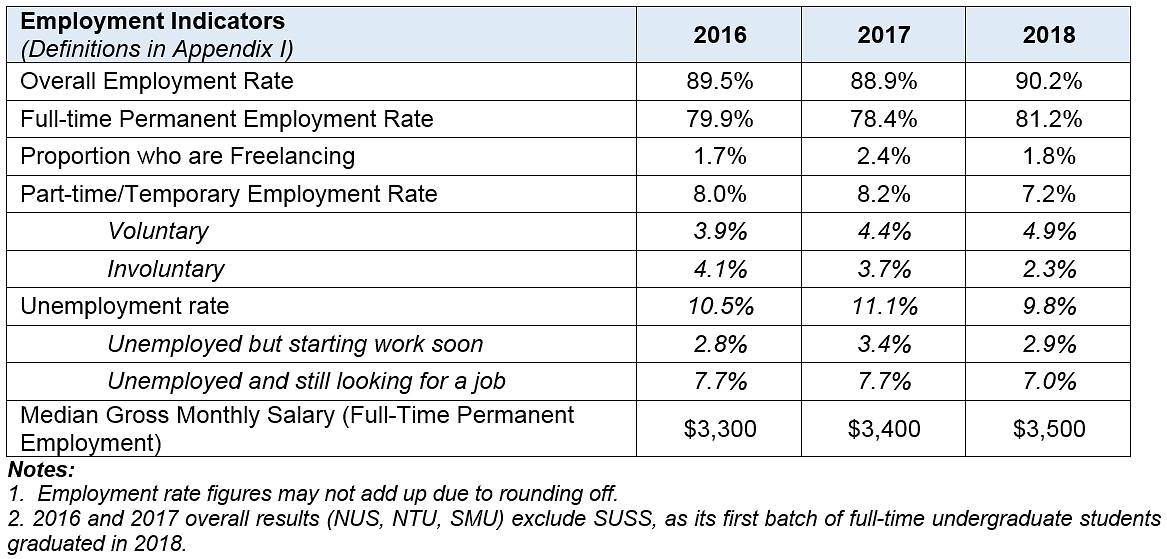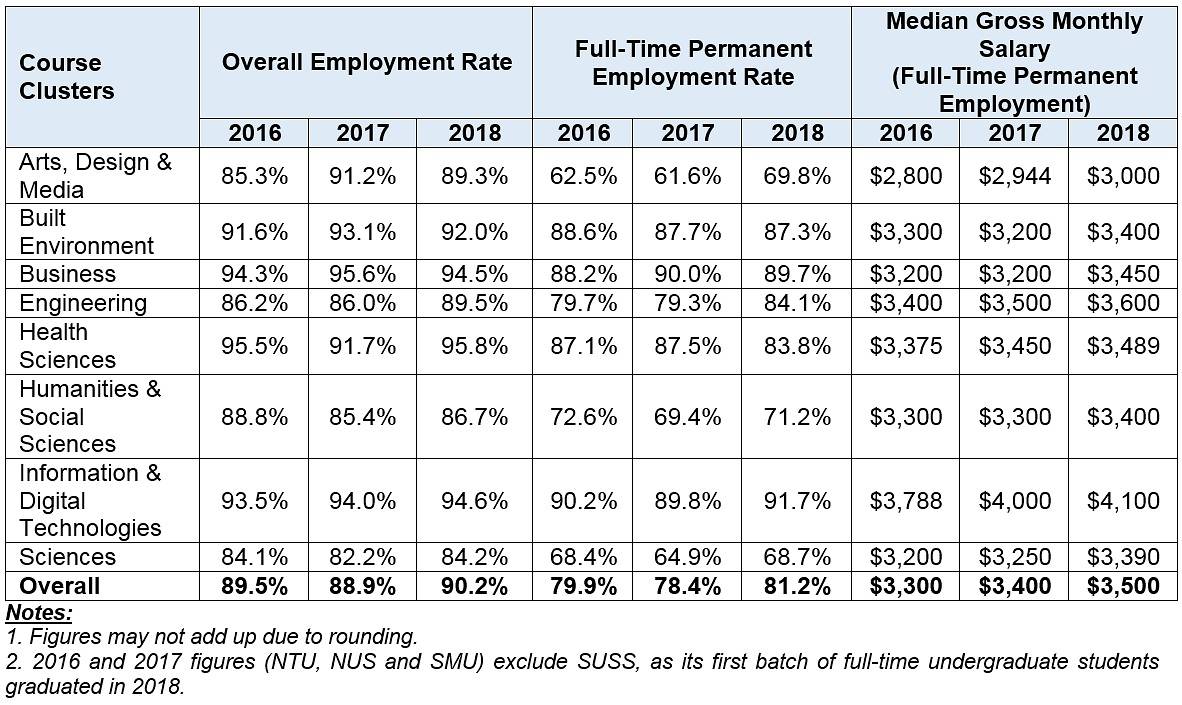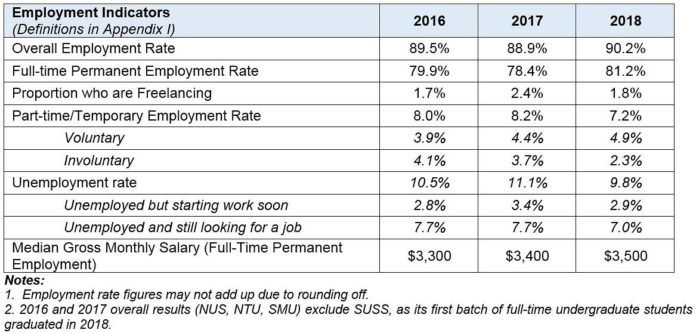SINGAPORE: Those who graduated in 2018 and were in full-time permanent employment reported higher median starting pay compared to those who graduated in the previous year, according to the results of a Joint Graduate Employment Survey published on Tuesday (Feb 26).
These graduates also achieved slightly higher overall and full-time permanent employment rates compared to the previous cohort.
The survey, which polled 11,200 fresh graduates from full-time programmes, was conducted by Nanyang Technological University (NTU), National University of Singapore (NUS), Singapore Management University (SMU) and the Singapore University of Social Sciences (SUSS).
The graduates were surveyed on their employment status as at Nov 1, 2018, about six months after the completion of their final examinations.
HIGHER MEDIAN STARTING SALARY
The mean gross monthly salary among fresh graduates in full-time permanent employment was S$3,733 in 2018, higher than S$3,613 in 2017. The median gross monthly salary was S$3,500, higher than the S$3,400 in 2017.
Of the 10,100 new graduates in the labour force, 90.2 per cent found employment within six months of completing their final examinations, higher than the 88.9 per cent in 2017.
The percentage of those in the labour force who secured full-time permanent employment also increased to 81.2 per cent, higher than the 78.4 per cent in 2017.
The proportion who were unemployed and still looking for a job decreased by 2.1 percentage points. The percentage of those doing freelance work and part-time or temporary employment also fell.

Table 1: Employment indicators of full-time graduates. (Image: Joint Graduate Employment Survey 2018)
The 2018 survey is the first time findings included combined course-cluster employment outcomes. This was to give prospective students an industry-centric view of such outcomes and help them make decisions on course choices, the survey added.
Information and Digital Technologies, Business and Built Environment graduates had the highest full-time permanent employment rates.
Engineering graduates also showed strong improvements in both overall and full-time permanent employment rates, compared to 2017. Median gross monthly salaries have also increased across all course clusters in 2018.

Table 2: Employment indicators of full-time graduates by course clusters. (Image: Joint Graduate Employment Survey 2018)
The 2018 follow-up survey polled 700 graduates from NTU, NUS and SMU. These graduates were from the Architecture Class of 2015, as well as the Biomedical Sciences and Chinese Medicine, Law, Medicine, and Pharmacy courses.
Of those in the labour force, 96.9 per cent secured employment after the completion of their practical training, housemanship or first-year residency training, similar to 2017.
Those in the labour force who secured full-time permanent employment increased to 93.9 per cent, slightly higher than the 93.6 per cent in 2017. Another 0.4 per cent were freelancing, lower than the 1 per cent in 2017.
The percentage in part-time or temporary employment was 2.6 per cent in 2018, compared to 2.2 per cent in 2017.
The mean gross monthly salary among those in full-time permanent employment was S$4,583, slightly higher compared to S$4,565 in 2017. The median gross monthly salary has remained at S$4,500 over the past three years.
PIONEER BATCH OF SUSS GRADUATES
The survey marks SUSS’ first set of graduate employment outcomes, with the graduation of its pioneer batch of full-time undergraduate students in 2018. The employment rates for SUSS graduates are comparable with that of other Autonomous Universities (AUs), the survey said.
SUSS’ graduates obtained high overall and full-time permanent employment rates of 95.5 per cent and 90.9 per cent respectively in 2018.
The median gross monthly salary of those in full-time permanent employment was S$3,000 and came from three courses – Bachelor of Accountancy, Bachelor of Science in Finance, and Bachelor of Science in Marketing.
The results for the Singapore University of Technology and Design (SUTD) and Singapore Institute of Technology (SIT) will be released at a later date as the survey is still ongoing.





